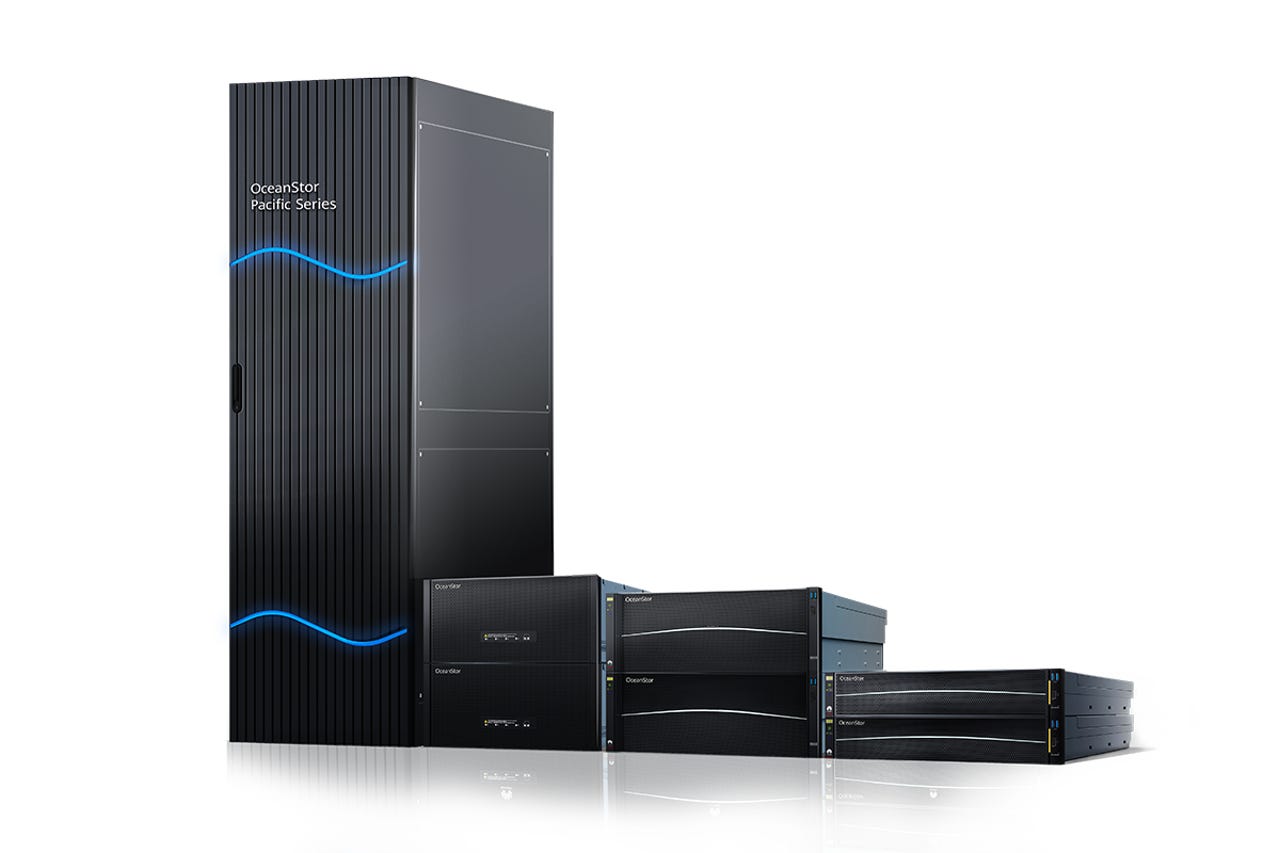Huawei OceanStor Pacific aims for storage for the masses

The explosion of data in recent years has sent enterprises looking for storage systems that are efficient, economical, and everlasting. Those three features may seem simple on paper, but they most likely require an overhaul of today's storage technologies.
That has now come in the form of Huawei's OceanStor Pacific series. Launched on May 28, it promises to break architectural, service, and performance boundaries.
Key to this is the use of uncompromising multi-protocol interworking, next-generation elastic EC algorithms and a series of dedicated hardware. For Huawei, this series marks a new standard for future mass data storage to help enterprises take full advantage of the data they generate, store, and process.
The launch comes at a time when mass storage has played an increasingly important role in digital transformation. Ironically, a lot more has to be done when it comes to storing and using that data -- only 2% of global data is stored and only 10% of the data is mined for further data, according to Huawei.
What the OceanStor Pacific series offers is a way to make use of that data to push faster transformations and create a deeper impact with it. The new storage system promises to bring mass data storage to enterprises so they do not have to deal with the lack of capacity, limiting data silos, or complex management of the data.
More efficient, economical, and everlasting
The first big change that OceanStore Pacific brings is higher efficiency, which will make a big difference to many enterprises. It brings a new interworking of file, HDFS, and object protocols, overcoming performance and semantic loss issues caused by traditional gateways.
Data does not need to be migrated between multiple storage systems. This means service processing is 25% more efficient, while reducing space by 20%. The next-generation file system also supports bandwidth and OPS-intensive applications, adapting to increasingly complex HPC loads.
Secondly, the OceanStor Pacific series is more economical due to the breakthrough innovations in its architectural design. Key to this are a high-reliability vNode mode and the next-generation elastic EC technology.
It yields a disk utilisation of up to 93%, over 40% higher than the industry average, without there being any compromise in performance and reliability. Its brand-new node with high density and large capacity supports 120 disks in a modest 5U space, which has 2.67 times higher density than general-purpose storage servers.
Hot, warm, and cold data is also automatically tiered onto solid state drives (SSDs), hard disk drives (SSDs), and Blu-ray disks on demand. In other words, the data can flow freely without intervention, a key to easier access by apps.
Thirdly, the new OceanStor Pacific also brings everlasting mass storage to enterprises. Through a four-level mechanism for data, devices, systems, and solutions, it delivers high reliability.
Its comprehensive sub-health detection and pre-processing also identify fault risks before they occur. Plus, cross-cluster active-active and three-site multi-active disaster recovery (DR) mechanisms make it possible for enterprises to have cross-region DR. This ensures 24/7 online services of banking images, online videos, and other production applications.
Storage for the masses
With the best-of-breed features, the latest upgrade from Huawei's OceanStor's series will be a welcome boost to enterprises seeking to take full advantage of their data to make a real impact in their business.
According to research firm IDC, total external OEM storage capacity shipments were up 9.4% year-over-year to 21.1 exabytes during the fourth quarter of 2019. So, enterprises are adding more data storage to their business.
Already, Huawei's popular OceanStor storage solution has been deployed by 12,000 customers across more than 150 countries in a variety of sectors, such as carriers, finance, government, energy, manufacturing, and transformation.
By adding mass storage capacity to enterprises, OceanStor Pacific will further fuel digital transformation efforts, bringing meaningful and lasting change to their operations.